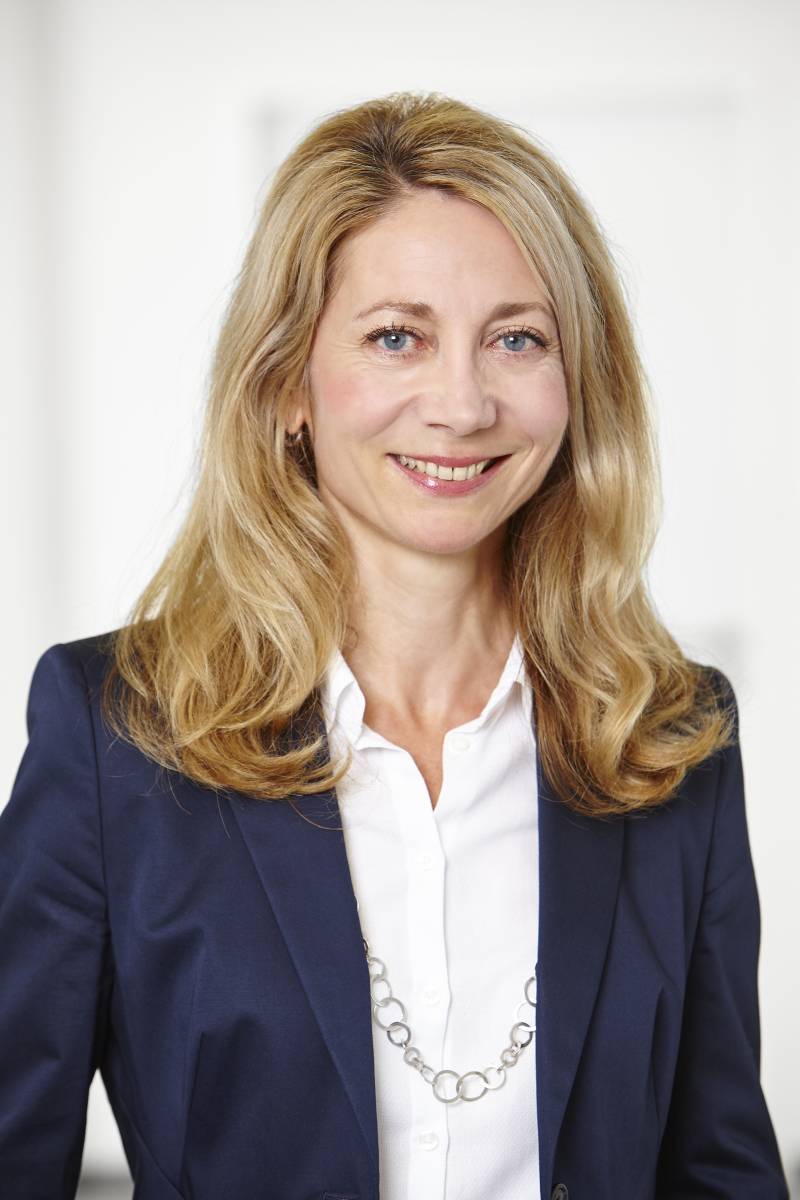Prof. Dr. Dipl.-Psych. Iris-Katharina Penner
About the person.

As a cognitive neuroscientist and neuropsychologist, I have many years of experience in neurocognitive and patient-centered clinical research and clinical practice. In my work, I pay particular attention to the creative development of new methodological procedures for diagnosing and treating neurodegenerative and inflammatory diseases of the central nervous system and implementing these procedures in daily clinical practice. I am nationally and internationally acknowledged as an expert in the field of human cognition and work as specialized consultant and speaker on a worldwide scale.
My distinct enthusiasm to develop and promote new ideas led to my decision to found the COGITO Center for Applied Neurocognition and Neuropsychological Research in Düsseldorf, Germany, in 2015. This center is considered unique in Germany, mainly because we offer neurocognitive and neuropsychiatric diagnostics as well as outpatient training concepts, which go beyond the often tightly-scheduled standard offers of clinical care. This enables us to give the individual patient much more room to describe his actual symptoms and to adapt the treatment to his individual needs. It is of particular concern to me that patients, with all their worries and fears that can arise in the context of neurological diseases and the accompanying symptoms, are treated well, feel well cared for and are taken seriously.
Specific characteristics of the center.
By developing and applying our own disease-specific and sensitive diagnostic and therapeutic methods, we help patients not only to understand their cognitive problems better and more thoroughly, but also to recognize the effectiveness of non-pharmacological therapy approaches. These can be used in a prophylactic and preventive as well as therapeutic manner.
- Development of new diagnostic and therapeutic procedures in digital and conventional form
- Neurocognitive research (with methods such as MRT, OCT, PET, biobanking)
- Conducting large clinical studies and IITs
As director of the center, the quality of the services we offer is essential to me. Therefore, I select my staff very carefully, not only on the basis of the grades obtained, but also and especially on the basis of personal qualities and passion for the profession. In my opinion, the latter are indispensable for the contact with people who suffer from an illness.
In October 2016, I was appointed extraordinary professor at the Department of Neurology at the Heinrich Heine University Düsseldorf including the following responsibilities:
- Leading member of the Multiple Sclerosis Unit
- Neuropsychological expert for clinical assessments of patients with various CNS disorders
- Head of translational research projects
- Teaching medical students in the field of cognitive neuroscience
Together with my team, I regularly organize advanced training events for physicians who are interested in neuropsychological matters. By providing specialized training within this subject, we aim at highlighting the relevance of neuropsychiatric symptoms for daily clinical practice.
Experience and scientific career
2013-2015 | President of the International MS Cognition Society (IMSCOGS) |
2013-2015 | Special consultation hour for neurocognitive diagnostics at the Neurozentrum Bellevue in Zürich/Switzerland |
2013-2014 | Neuropsychological Projectleader NeuConn, University Clinic Eppendorf, Hamburg/Germany, Clinic and Policlinic for Neurology |
| 2010-2014 | Associate Professor at the Department of Neuropediatrics (University Children’s Hospital Basel/Switzerland) and the Department of Cognitive Psychology (University of Basel/Switzerland) |
| 2003-2010 | Senior scientific assistant at the Department of Cognitive Psychology and Methodology (University of Basel/Switzerland) and senior associate neuroscientist at the Neurology Department (University Hospital Basel/ Switzerland, Prof. Dr. L. Kappos) |
| 2000-2003 | Scientific assistant at the Department of Cognitive Psychology and Methodology (University of Basel/Switzerland) and associate neuroscientist at the Neurology Department (University Hospital Basel/ Switzerland, Prof. Dr. L. Kappos) |
| 1999-2002 | Scientific assistant at the Department of Neuroradiology and collaborator of the MS-MRI Evaluation Center Basel/Switzerland (Prof. Dr. E.W. Radü) |
| 1998-1999 | Research fellowship of the German Science Foundation (DFG) for participation in the Graduiertenkolleg KOGNET Scientific assistant at the Institute of Biological Psychology, Ruhr-University Bochum/Germany (Prof. Dr. O. Güntürkün)
|
Academic qualifications
| 10/2016 | Professorship at the Neurology Department of the Heinrich Heine University Düsseldorf, Germany |
| 02/2016 | Inauguration as faculty member of the Medical Department of the Heinrich Heine University Düsseldorf, Germany and affiliation to the Neurology Department, Cognitive Neuroscience |
| 09/2009 | Inaugural lecture at the University of Basel, Switzerland, on the topic: „fatigue throughout time – ennui, lassitude, weariness, neurasthenia, chronic fatigue syndrome or simply infinite exhaustion“ |
| 03/2009 | Postdoctoral lecture qualification (Habilitation) on the topic “neurocognitive impairment in multiple sclerosis: from diagnosis to rehabilitation” |
| 2003 | Doctorate in Psychology summa cum laude (University of Basel, Switzerland) Subject of doctoral thesis: Analysis of attention processes in MS patients using functional magnetic resonance imaging (fMRI) |
| 1996 | Diploma in Psychology (University of Berlin, Germany) Diploma thesis at the Department of Experimental Psychology, Biological Psychology and Cognitive Psychology Subject of diploma thesis: Anxiety and worry - social desirability scales as suppressor or moderator variables? |
In-house developed diagnostic and rehabilitation tools
- Fatigue Scale for Motor and Cognitive Functions (FSMC): Questionnaire to measure cognitive and physical fatigue in patients with multiple sclerosis; translated worldwide into 38 languages and outcome measure in various ongoing multicenter studies.
- BrainStim: A computerized tool for training different aspects of working memory; applicable in the clinically preventive and rehabilitative field for patients with working memory disorders in various underlying primary diseases (e.g. multiple sclerosis, dementia, schizophrenia, anorexia). This program is not available for private use and should only be conducted with a training plan and training instructor on-site.
Membership in expert associations
- International MS Cognition Society (IMSCOGS; Member of the Executive Board)
- German Society for Neurology (DGN)
- Professional Association of German Neurologists (BDN; Member of the Advisory Board)
- German Multiple Sclerosis Society (Member of the Medical Advisory Board)
- Professional Association of German Neurologists (BVDN)
- European Academy of Neurology (EAN)
- Society for Neuropsychology (GNP)
- German Society for Psychology (DGPs)